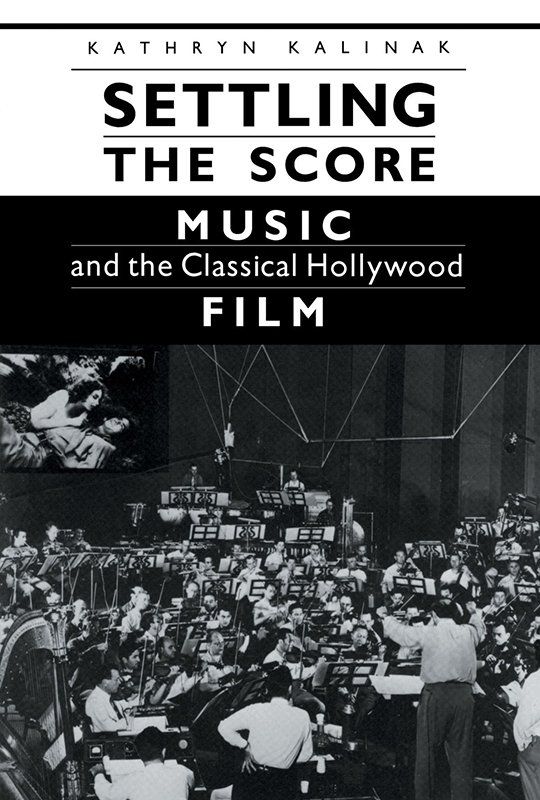Settling the Score

Settling the Score: Music and the Classical Hollywood Film
Author: Kathryn Kalinak
Publisher: University of Wisconsin Press, 1992
Kathryn
Kalinak places film scores in a historical context focusing on Erich Korngold's score for
Captain Blood (1939). She then analyzes various film scores: Max Steiner's
The Informer (1935), Bernard Herrmann's
The Magnificent Ambersons (1942), David Raskin's
Laura (1944), and finally John Williams's
The Empire Strikes Back (1980). This major work on scoring goes a long way toward proving the importance of music in film. - Sherle Abramson
It used to be difficult to find any book about film music but now they appear with increasing regularity. No complaints about that – for it demonstrates that the subject, so often derided in the past by snooty critics, has become a legitimate area for serious study and analysis.
The traditional Hollywood score, discussed by Kathryn Kalinak in her studious but readable book, as typified by Max Steiner, Erich Korngold, Alfred Newman, Miklos Rozsa and others, is arguably the perfect way to score a film. Regardless of the subject, any film made today could benefit from such a score. Kalinak praises the golden age of film scoring and demonstrates why the symphonic, romantic, late nineteenth century style of composing, with its formal unity deriving from the principle of the leitmotif, was so right for the movies. She further postulates that, despite setbacks such as the introduction of jazz, pop, and synthesizers, the tradition lives on through composers such as John Williams who exemplifies the classic golden age tradition.
Kalinak discusses in particular the scores for Vertigo, Captain Blood, The Informer, The Magnificent Ambersons, Laura and The Empire Strikes Back. The first part of the book considers musical, theoretical, structural and historical questions. The second provides extended analyses of specific scores. Kalinak states that her aim is to “stir an appreciation of an oft-neglected component of film and to inspire an interest in its study.” This she does admirably. Apart from crediting John Williams for holding out against the onslaught of contemporary musical forces, she also praises Basil Poledouris for scores such has ROBOCOP, which she claims owes much to the classical models such as CAPTAIN BLOOD. A worthy addition to the current range of books on the subject.



